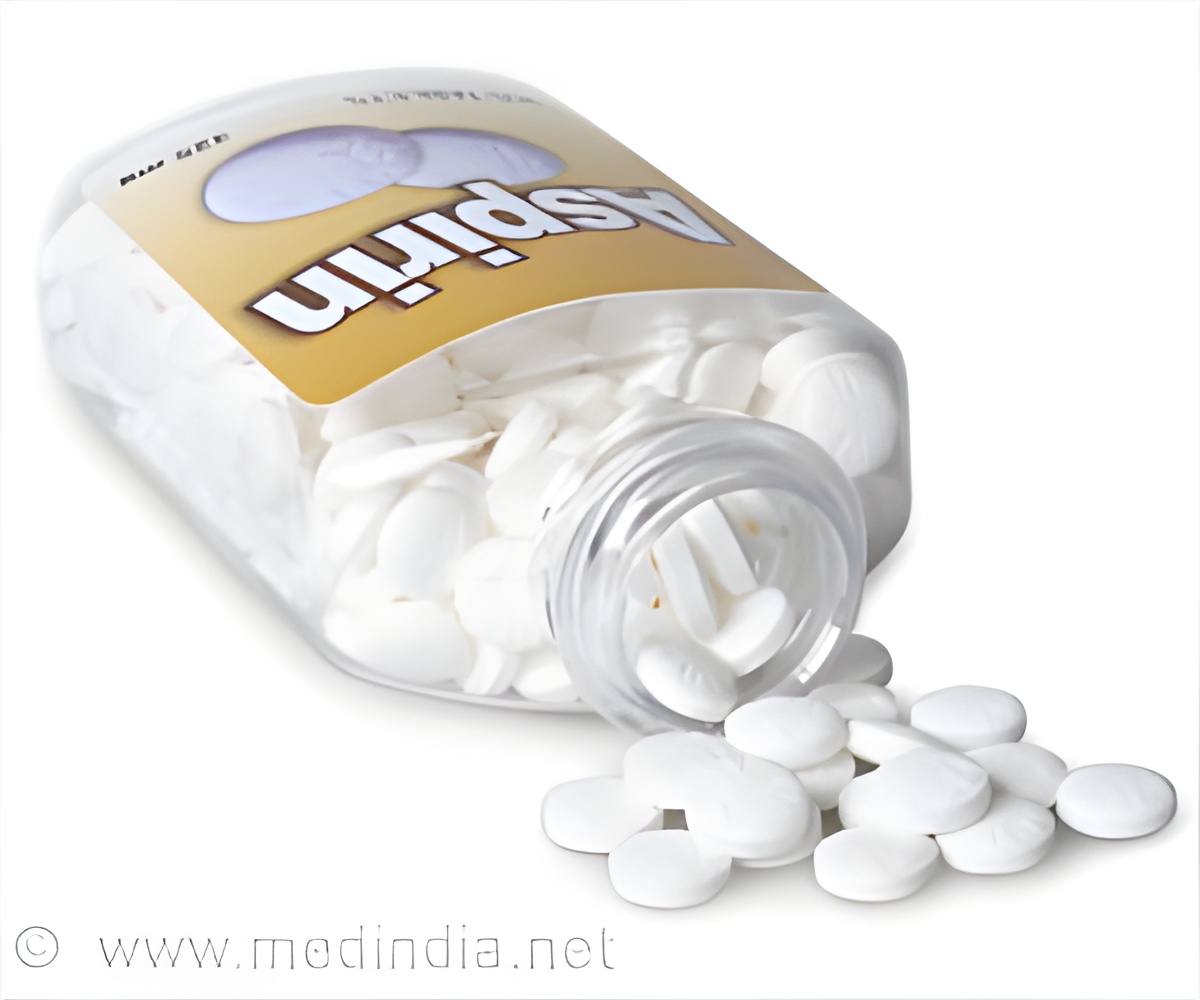New study has found that 2.5 percent of women and 12.1 percent of men without established cardiovascular disease were likely to derive net benefit from aspirin treatment.

‘Aspirin reduces the risk for CVD in at-risk patients, but also increases the risk for bleeding. It is not clear if the benefits of aspirin outweigh the risks for patients without known CVD.’





The researchers found that 2.5 percent of women and 12.1 percent of men without established CVD were likely to derive net benefit from aspirin treatment for 5 years if a hospitalization or death due to an acute CVD event was considered equivalent to a hospitalization or death due to an acute major bleed. These percentages increased to 21 percent of women and 41 percent of men when one CVD event was assumed to be equivalent to two major bleeds. The author of an editorial from the Cardiovascular Institute, Rutgers Robert Wood Johnson Medical School cautions that the study findings may not apply to populations outside New Zealand. Also, participants over the age of 79 were not included in the analysis.
The author points to the diversity of findings in several aspirin studies to conclude that making firm, evidence-based recommendations for aspirin use for primary prevention is difficult.
Notes and media contacts: For an embargoed PDF please contact Lauren Evans at laevans@acponline.org. To speak with author, Vanessa Selak, MBChB, PhD, please contact her directly at v.selak@auckland.ac.nz.
Source-Eurekalert















